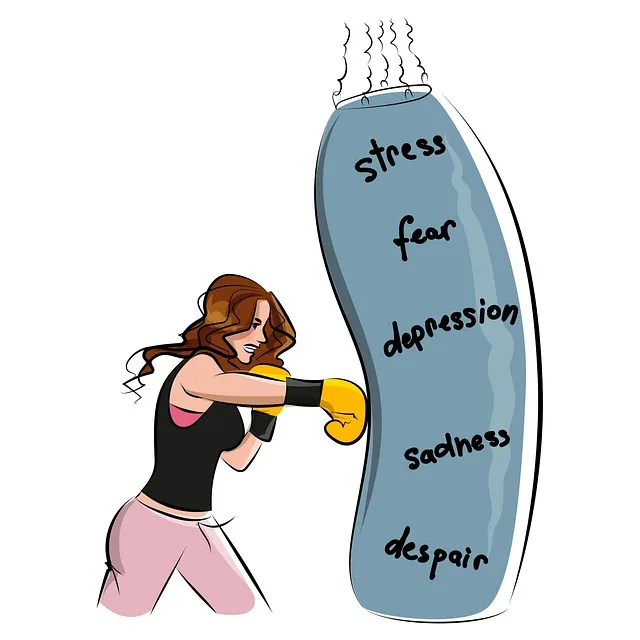Kaiser Permanente in Longmont provides Recovery, Resilience, and Mental Health (RFM) training programs that equip individuals with coping mechanisms for stress, anxiety, and trauma. These initiatives enhance emotional healing, build mental fortitude, and promote a growth mindset. The comprehensive approach includes Risk Management Planning, Stress Reduction Methods, and a Mental Wellness Podcast Series, supporting both provider well-being and improved patient outcomes. Key benefits include enhanced mental agility through positive thinking and emotional intelligence development.
Resilience is a vital asset in today’s fast-paced world, and organizations like Kaiser Permanente recognize its value. This article explores RFM (Resilience, Flexibility, and Mobility) and its profound impact on building resilience. We present a case study of Kaiser Permanente’s successful training programs in Longmont, showcasing how structured exercises enhance emotional and physical well-being. Additionally, we offer practical strategies for implementing resilience-building practices, highlighting their numerous benefits for individuals and organizations alike, particularly in the healthcare sector.
- Understanding RFM and Its Impact on Resilience
- Kaiser Permanente Training Programs in Longmont: A Case Study
- Implementing Resilience-Building Exercises: Strategies and Benefits
Understanding RFM and Its Impact on Resilience

Resilience is a vital asset in navigating life’s challenges, and RFM (Recovery, Resilience, and Mental Health) training programs play a crucial role in fostering this inner strength. Kaiser Permanente Longmont offers such initiatives as part of their commitment to holistic well-being. These programs are designed to empower individuals with effective coping mechanisms, enabling them to manage stress, anxiety, and trauma.
By participating in RFM exercises, individuals can enhance their emotional healing processes and develop a deeper sense of resilience. The training equips folks with tools to build mental fortitude, ensuring they can bounce back from setbacks and adversity. It’s not just about overcoming difficult situations; it’s about cultivating a mindset that embraces challenges as opportunities for growth, fostering inner strength development along the way.
Kaiser Permanente Training Programs in Longmont: A Case Study

Kaiser Permanente Training Programs in Longmont stands as a beacon of resilience-building within the healthcare industry. This case study highlights their innovative approach to equipping mental health professionals with robust tools for managing stress and enhancing patient care. Through comprehensive programs, Kaiser Permanente Longmont offers a unique blend of Risk Management Planning for Mental Health Professionals, Stress Reduction Methods, and Mental Wellness Podcast Series Production. These initiatives not only strengthen the emotional resilience of healthcare providers but also significantly improve patient outcomes.
The programs’ success lies in their holistic nature, addressing not just individual stress management but also fostering a supportive work environment that prioritizes mental wellness. By integrating these strategies, Kaiser Permanente Longmont has established itself as a leader in promoting mental health and well-being within the healthcare sector, setting a benchmark for others to follow.
Implementing Resilience-Building Exercises: Strategies and Benefits

Implementing resilience-building exercises is a powerful strategy that can significantly enhance an individual’s ability to cope with challenges and setbacks. Kaiser Permanente training programs in Longmont, Colorado, have recognized this and incorporated various initiatives to promote emotional well-being. These programs aim to equip participants with effective tools for stress reduction methods and fostering emotional intelligence.
One of the key benefits is improved mental agility. By engaging in regular resilience exercises, individuals learn to cultivate positive thinking, which serves as a shield against adversity. This cognitive shift enables people to navigate life’s twists and turns with greater ease, ensuring they remain resilient in the face of stress or traumatic events. Such training also encourages participants to develop a deeper understanding of their emotions, allowing them to respond rather than react, thereby fostering emotional intelligence.
The implementation of resilience-building exercises, as demonstrated through Kaiser Permanente’s successful training programs in Longmont, highlights the significant role of RFM (Resilience, Flexibility, and Mindfulness) in fostering adaptability and well-being. These strategies not only enhance individual resilience but also create a more robust and supportive organizational culture. By integrating RFM into workplace routines, businesses like Kaiser Permanente can better navigate challenges, improve employee satisfaction, and ultimately provide enhanced services to their communities. The case study from Longmont serves as a compelling example of how resilience-building initiatives can thrive and make a tangible impact in today’s fast-paced environment.






